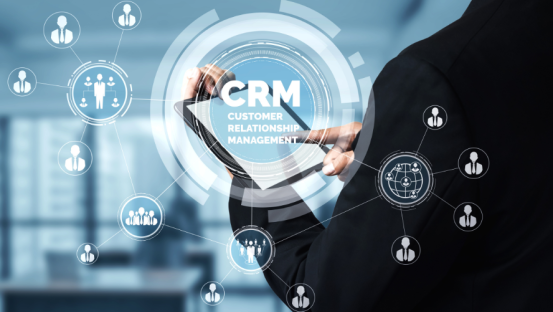How to Plan a Seminar That Boosts Motivation and Delivers Value

Organizing a seminar is no small task. Each one offers a unique learning opportunity, so no two events are the same. However, they all have one thing in common—to empower participants to take positive action in their personal or professional lives.
Whether it's your first time organizing a seminar or you're a pro, there's a lot involved in creating a valuable, motivational, and interactive event.
As attending a seminar often requires travel or time away from family, your attendees will have high expectations. It's up to you to meet them. And with good planning and preparation, you may even exceed them.
You'll need three to six months up your sleeve to plan a successful seminar. In that time, you'll need to organize a venue, create an agenda, book speakers, promote the event, and much more. But the juice is worth the squeeze.
Let's look at how to plan a seminar that boosts motivation and delivers value.
Define Your Goals
Before planning kicks off, determine the specific outcomes you hope to gain. Whether your seminar is for educational or motivational purposes, it should inspire change.
Brainstorm potential results, such as increased productivity, enhanced teamwork, improved communication, upskilling, or a positive change in attitudes and behaviors. You'll likely have a list of goals, so prioritize them according to the tried-and-true SMART criteria:
-
Specific
-
Measurable
-
Achievable
-
Relevant
-
Time-bound
Once you have set your goals, communicate them to your attendees and stakeholders so everyone understands them. Well-defined goals give you the framework for planning a successful event.
Understand Your Attendees
If you want maximum engagement, you'll need to know your audience. This allows you to tailor the seminar's content, ensuring that it resonates with the attendees and offers opportunities for interaction.
Start by understanding your audience’s demographics, interests, and needs. Identify the challenges and knowledge gaps and design a seminar that addresses those areas. Researching your audience also helps you find a speaker that aligns with your listeners and delivers relevant and valuable material. When attendees relate to the seminar’s message, they are more likely to have a positive experience and apply their learning in their personal or professional lives.
Create A Compelling Agenda
Think of your agenda as the ultimate marketing tool. Not only will your program serve as an outline for the event, but it will also attract your target attendees. It needs to be an attention-grabbing piece of material. Use a mix of text and visuals to build anticipation among the attendees.
An agenda should also cover the complete picture of the seminar, including the speakers, activities, topics, and sessions. A compelling agenda goes a step further. It showcases the event as a dynamic and engaging learning environment that delivers new opportunities.
Your agenda is a guiding document and a marketing tool in one. It should attract attendees and set expectations while ensuring the event is well-organized, focused, and successful.
Find An Inspiring Venue
Creating a captivating environment is essential for retaining engagement. The venue’s atmosphere evokes certain experiences, be it positive or negative. Find a modern conference or meeting venue that inspires and stimulates your attendees.
Seminar venues have a tough reputation for being dated, stuffy environments that drain all inspiration from their attendees. While some are still yet to be modernized, many seminar venues are now designed to boost your event.
A suitable venue will have plenty of natural light and ventilation, and it should boast all the necessary technology and equipment, such as microphones, projectors, and Wi-Fi. Finding a venue that provides all these gives you one less thing to organize.
To take your event to the next level, ensure that your venue provides delicious catering, giving your attendees the sustenance they need to stay engaged and attentive.
Book Engaging Speakers
Your speakers are responsible for holding the audience's attention for the entire seminar. Not all speakers need to be well-trained professionals, but they need the power to enhance the learning experience and the confidence to facilitate discussions and group participation.
A good speaker is passionate about your seminar's topic, enabling them to deliver information in a concise, relatable, and humorous way. They aim to leave a lasting impact and encourage attendees to pursue opportunities and make positive changes in their personal or professional lives.
As seminars typically run over several days, you may need to book more than one speaker to cover the event. Ensure that they're credible ambassadors for the topics on your agenda so attendees can trust the content they share.
Prepare To Evaluate
Your job isn't done once the seminar is over. Evaluating the seminar is critical to understanding its success, too.
This is where you'll revisit your measurable goals and calculate any changes after the period specified in your framework. Whether it's a percentage increase in productivity after three months or a boost in sales after one year, you'll have a set of expected outcomes to gauge. You’ll have concrete measures of the event’s success.
Conclusion
You can use this information to plan future seminars and training sessions. You'll see what did and didn’t work and which aspects delivered the most value.
Planning a seminar is lengthy and complex, but following a plan ensures a seamless flow. From choosing the right venue to selecting the best speakers, you can create an impactful event that motivates, inspires, and succeeds.




